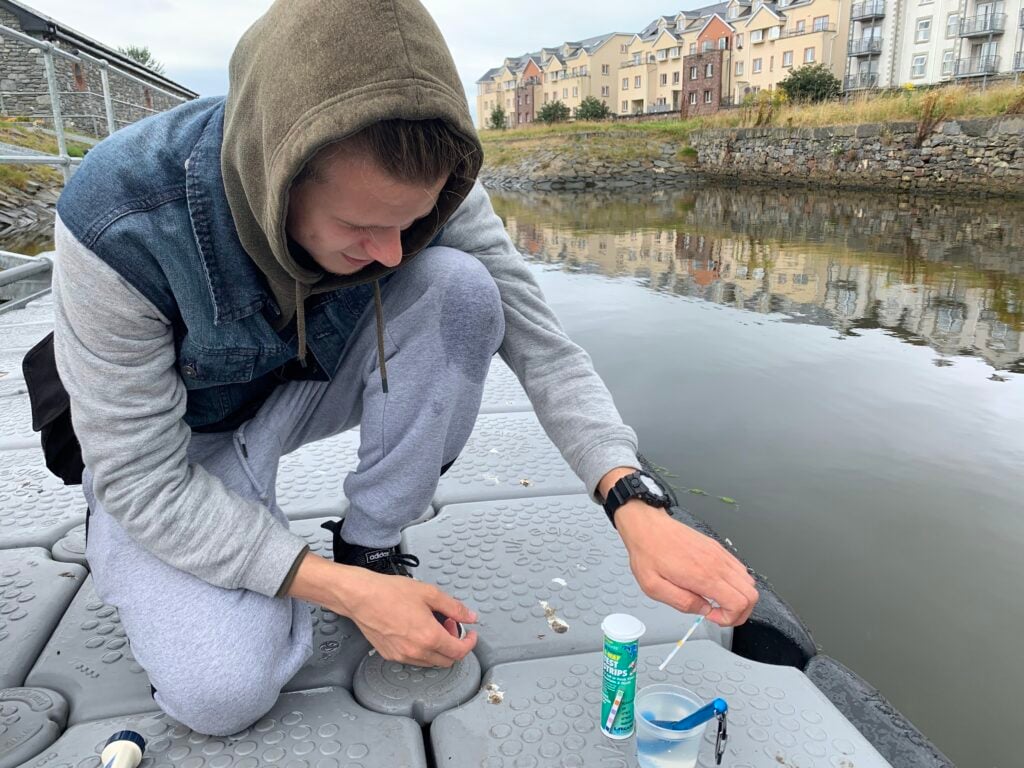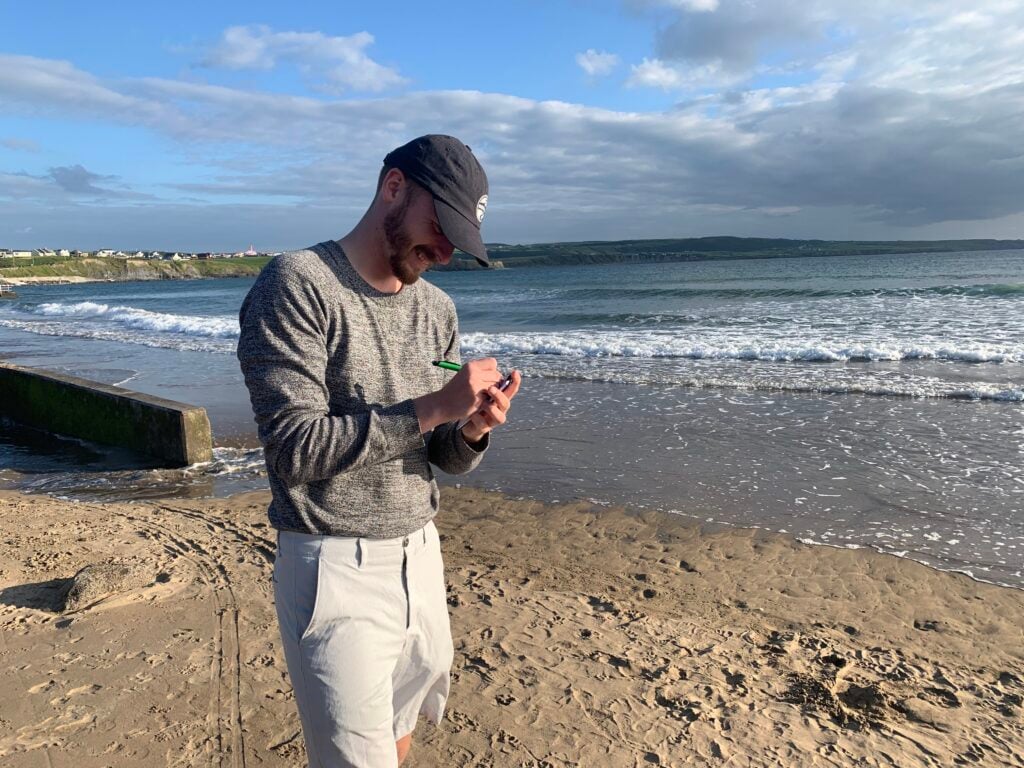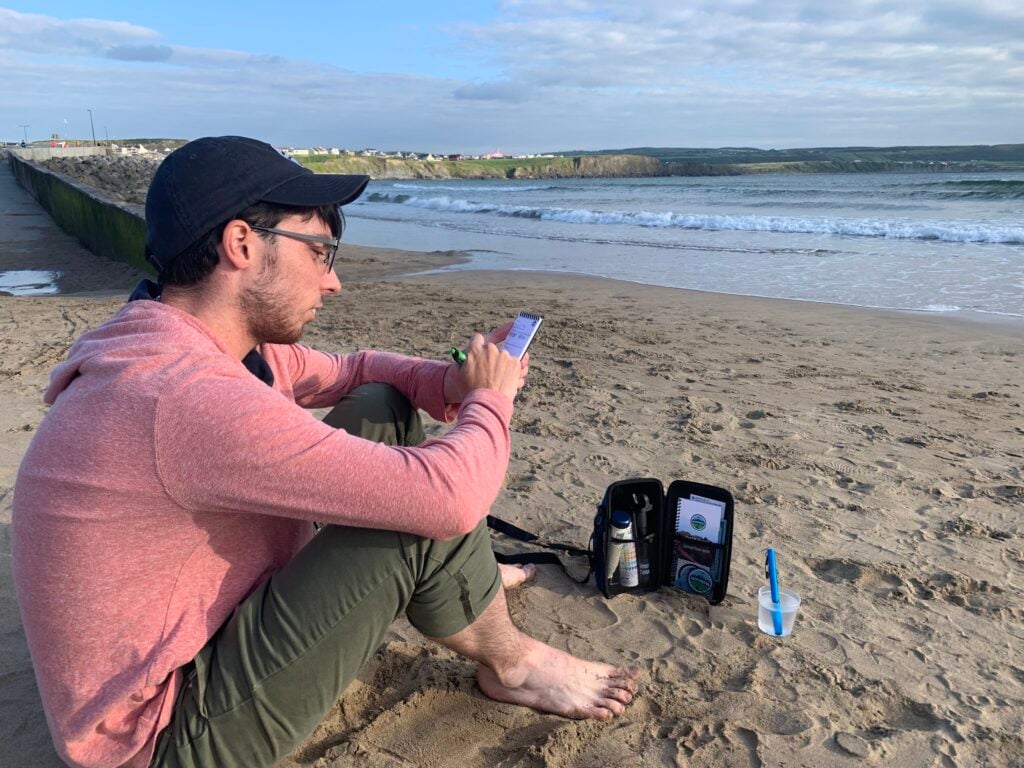What brings you to the ocean?
Simon Maclean is our store & supply chain coordinator at our warehouse in Val-des-Monts, QC.
I didn’t always love the ocean. As a child, I was scared of seaweed, big waves, but most of all, jellyfish. Luckily, like many of us do, I’ve grown to learn from and appreciate the ocean for its importance.
We all have a reason to visit the ocean. For myself, it was for an exam, one 6-hour flight away on the coast of Ireland. While there aren’t many more daunting reasons to fly somewhere, a big perk was that I would be back on the water, ready to enjoy it. I found myself lucky to be a part of Water Rangers, with the facilities to do some much-needed testing on the east side of the Atlantic.
Did you know that an estimated 50-80% of the world’s life can be found in the ocean?
Did you know that the ocean contains over 99% of the living space on Earth, and that humans have only explored less than 10% of it?
Why should we care so much about the ocean?
The ocean contributes to so much of daily life, worldwide and throughout the natural ecosystems that enable us to enjoy water. However we use water, the ocean is the heart of the earth’s surface. Whether our purpose for oceans is to live by them, work on them, or travel over them, it is important to monitor the state of our most valuable resource.

What are some benefits of observing & testing sea water?
Researchers use data collected from a combination of water quality tests on different areas of the ocean. From this data, they have the ability to identify trends in temperature, pH, alkaline, salinity, clarity, and depth. These parameters contribute to the health of our ecosystem below sea level, and provide a timeline for ocean life going forward.

Here’s what you can learn about your accessible sea water in less than 15 minutes:
- pH: pH is the measure of acidity or basicity in a body of water. The results of observing pH in oceans determine the potential for life, and identifying trends of environmental growth. Small changes in pH are a contributing factor to life and death between the tides.
- Dissolved oxygen: Like us on land, aquatic organisms require oxygen to survive. Observing dissolved oxygen levels in water determines the potential for life of fish and plants deep below the surface.
- Water depth/clarity: Using info gathered from ocean depth and ocean clarity, information is uncovered about sea levels and water quality. Water clarity will differ at certain times of year, and it is interesting to observe how far down we can see into our underwater ecosystems, compared to how deep they actually go.
- Temperature: The temperature of ocean water is important to track for even more reasons just whether we do or don’t jump in. Temperature is directly related to water density, dissolved oxygen, expected precipitation, and distribution of ocean life. Even as small as a 0.1°C change in water temperature can have detrimental effects on life in the sea. Marine ecosystems are driven by their temperature, so understanding ocean temperature is fundamental to the effect climate has worldwide.

How can I start testing ocean water, or learn more?
Just 15 minutes is all that is required to have an impact on your local water. As I travelled along the west coast of Ireland, I was lucky enough to bring some local friends water testing. In only a short amount of time, while testing on Lahinch Beach, Tralee Town Canal, and Tralee Bay, some who had lived in the area for years were enthusiastic about learning something new about their local waterway.
Ready to start testing?
There’s tons you can do to start exploring.
- View our data map
- Explore all our ocean testing kits
- Want to dip your toes in? You can use our Ocean Week Tinykit!
- Learn more about testing with the Tinykit! Works with fresh and salt water!
On both sides of the Atlantic…
Fellow Ranger and ocean specialist, Roxanne, was doing her own observing of the North Atlantic on the coast of Newfoundland. Together, we were able to make some interesting comparisons between the two locations, and find out some cool facts about the Atlantic Ocean based on our observations! Both of us found unique locations that have never been tested before, and we encourage readers to check if ocean water you enjoy visiting, or would like to visit, has been tested!
Water testing is easy to pick up, and the equipment involved is simple to use. Water Rangers hopes you to consider testing oceans if you’re interested in monitoring ocean water, community testing, using ocean water for research, or even just picking up a hobby!